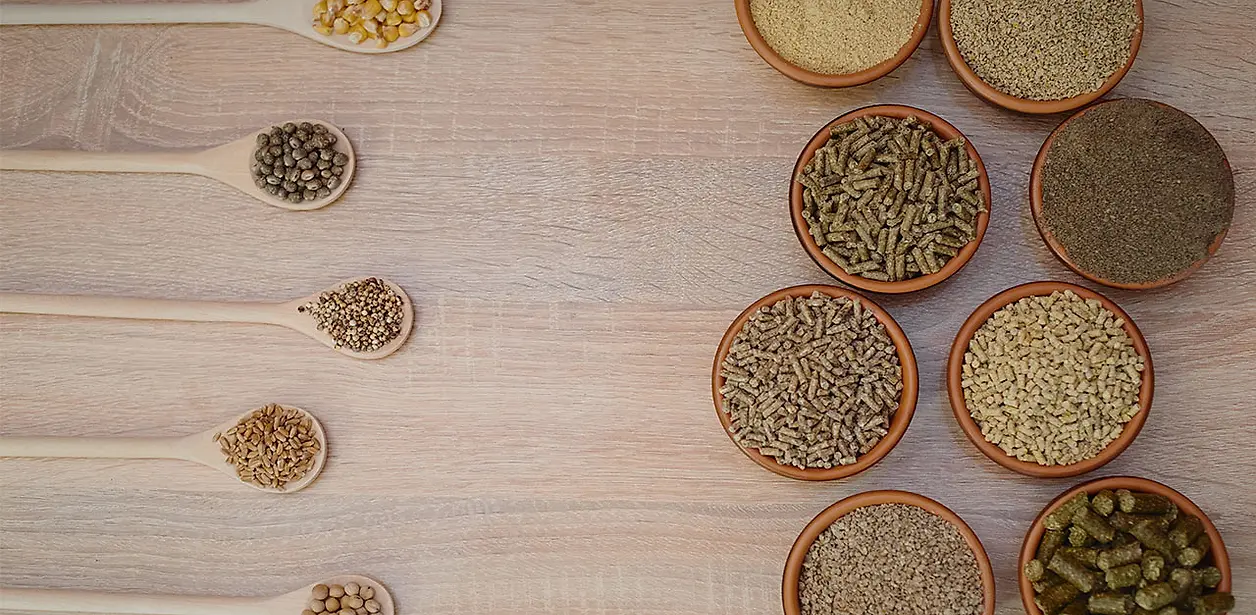ISO 112730 Ash Residue Testing in Protein Concentrates
The ISO 112730 standard provides a rigorous framework for determining ash residue content in protein concentrates. This test is crucial for ensuring the purity and quality of feed products, as it helps identify impurities that could impact animal health or performance.
Ash residue testing involves heating samples to extreme temperatures (typically around 550°C) until all organic matter burns away, leaving behind only non-combustible elements. This method is essential for accurate nutrient analysis in feed formulations, especially when dealing with protein concentrates that may contain additives like bone meal or fishmeal.
Accurate ash residue determination ensures compliance with international standards and regulations, such as those set by the European Commission (EC) and the United States Food and Drug Administration (FDA). The process is particularly important for producers of high-quality animal feed who must meet strict dietary requirements to support optimal growth and health in livestock.
The primary goal of this testing method is to quantify the ash content, which includes minerals like calcium, phosphorus, potassium, sodium, magnesium, iron, copper, zinc, and manganese. These elements are essential for proper nutrient balance but should be present in controlled amounts to avoid toxicity or deficiency issues.
At Eurolab, we employ state-of-the-art equipment and adhere strictly to ISO 112730 guidelines to ensure precise measurements. Our team of experts follows all necessary safety protocols during sample preparation and testing to minimize errors. We use high-precision balances and furnaces capable of maintaining consistent temperatures throughout the process.
Our laboratory adheres to stringent quality control measures, ensuring every result is reliable and repeatable. Compliance with ISO 112730 guarantees that our clients receive accurate data they can trust when making critical decisions about their feed formulations.
Benefits
- Ensures consistent quality across batches of protein concentrates;
- Helps maintain regulatory compliance with international standards;
- Promotes safer feeding practices by reducing the risk of contamination from excessive ash content;
- Aids in optimizing feed formulations for better animal health and performance;
- Facilitates accurate nutrient analysis, which is vital for precise dietary planning;
- Supports research and development efforts aimed at improving feed efficiency and sustainability.
Eurolab Advantages
At Eurolab, our expertise lies in providing comprehensive testing solutions tailored to the needs of the food & feed industry. Our team is committed to delivering accurate results consistently across all projects. Here are some key advantages that set us apart:
- Accurate and Reliable Results: We use cutting-edge technology and follow strict protocols to ensure every test yields reliable outcomes.
- Comprehensive Reporting: Our reports include detailed descriptions of the testing process, raw data, and conclusions drawn from our findings.
- Fast Turnaround Times: Our efficient workflow allows us to deliver results quickly without compromising on accuracy.
- Dedicated Expertise: Our professionals have extensive experience in food & feed analysis, ensuring they understand the nuances of each project.
- Regulatory Compliance: We stay updated with the latest regulations and standards, helping our clients comply seamlessly.
- Client Satisfaction: Your success is our priority. We work closely with you to ensure your needs are met effectively and efficiently.
Use Cases and Application Examples
| Use Case | Description |
|---|---|
| Quality Assurance | Determining the ash content in protein concentrates to ensure consistent quality across batches. |
| Regulatory Compliance | Ensuring adherence to international standards like ISO 112730 for nutrient analysis in feed products. |
| R&D Support | Aiding research and development efforts by providing accurate data on ash residue content. |
| Supply Chain Optimization | Identifying potential issues early in the supply chain to prevent costly mistakes downstream. |
| Animal Welfare | Maintaining safe feeding practices that promote healthier animals and better performance. |





